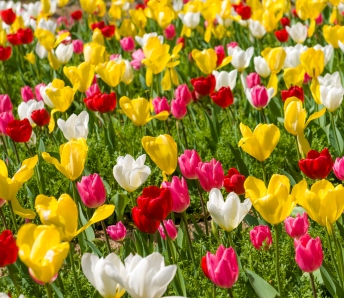The views expressed in our content reflect individual perspectives and do not represent the authoritative views of the Baha'i Faith.
 How do you define yourself? Who – and what – are you? Do you see yourself as black or white, Asian or Indian, Brazilian or Tongan or Ethiopian or American, secular or religious?
How do you define yourself? Who – and what – are you? Do you see yourself as black or white, Asian or Indian, Brazilian or Tongan or Ethiopian or American, secular or religious?
With a background in peace and conflict studies, I spend time thinking about these kinds of identities. More specifically, I want to understand what kinds of human identities and affiliations create the “us vs. them” divisions that cause so much conflict in the contemporary world. I’ve been blessed to travel widely and, having grown up in the Baha’i tradition, I tend to think of my own identity as a global citizen before I think about myself as an American. A few decades ago, that way of defining myself may have been considered unusual – but that’s changing as the world becomes increasingly integrated and interdependent.
Overall, individuals find their place in the world and fit into a wider social framework by forming their own identities. But problems arise when the primary identity of an individual or group — such as an affiliation with a nation-state, ethnicity, or religion — becomes so all-consuming that it leads to violence against those who hold opposing views.
 The writings of the Baha’i Faith honor the legitimate attachments that people may feel for, say, one’s race, or culture, or religion. While most people associate oneness and universality with the Baha’i Faith, a closer examination of identity in the Faith’s writings show considerably more nuance. In fact, the Baha’i teachings definitely encourage love of one’s country, a “sane patriotism,” and an individual’s pride in their own cultural heritage. A beautiful garden becomes that way, Baha’is believe, because of its diversity of shape, fragrance, and color. Although recognizing one’s place in the larger human family and becoming a world citizen defines the Baha’i teachings, this principle:
The writings of the Baha’i Faith honor the legitimate attachments that people may feel for, say, one’s race, or culture, or religion. While most people associate oneness and universality with the Baha’i Faith, a closer examination of identity in the Faith’s writings show considerably more nuance. In fact, the Baha’i teachings definitely encourage love of one’s country, a “sane patriotism,” and an individual’s pride in their own cultural heritage. A beautiful garden becomes that way, Baha’is believe, because of its diversity of shape, fragrance, and color. Although recognizing one’s place in the larger human family and becoming a world citizen defines the Baha’i teachings, this principle:
… can conflict with no legitimate allegiances, nor can it undermine essential loyalties. Its purpose is neither to stifle the flame of a sane and intelligent patriotism in men’s hearts, nor to abolish the system of national autonomy so essential if the evils of excessive centralization are to be avoided. It does not ignore, nor does it attempt to suppress, the diversity of ethnical origins, of climate, of history, of language and tradition, of thought and habit, that differentiate the peoples and nations of the world. – Shoghi Effendi, The World Order of Baha’u’llah, p. 77.
Despite support for these affiliations, the founders of the Baha’i Faith disparage the destruction that can occur when an over-attachment to narrowly-construed identities prevent people from seeing the common humanity in each other. Shoghi Effendi, the appointed head of the global Baha’i community until his passing in 1957, refers in a quite strongly-worded statement to some of these prejudices:
The theories and policies, so unsound, so pernicious, which deify the state and exalt the nation above mankind, which seek to subordinate the sister races of the world to one single race, which discriminate between the black and the white, and which tolerate the dominance of one privileged class over all others – these are the dark, the false, and crooked doctrines for which any man or people who believes in them, or acts upon them, must, sooner or later, incur the wrath and chastisement of God. – The Promised Day is Come, p. 113.
Clearly, the Baha’i writings support the rich diversity of human identity and experience as a source of celebration. But they also condemn any affiliation that—when taken to an extreme—becomes a harbinger of division. Overall, the founders of the Baha’i Faith invite individuals to see identity in this much broader context.
(Note: This entry was adapted from a published paper by the author entitled “New Perspectives on Identity and Conflict,” in Living in Peace: Insights from World Religions, Chanju Mun and Ronald Green, eds., Blue Pine Books, Honolulu, HI, 2012.)

















Comments
Sign in or create an account
Continue with Facebookor